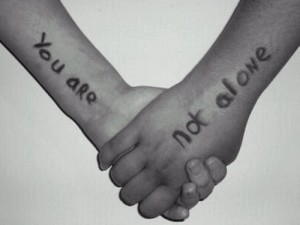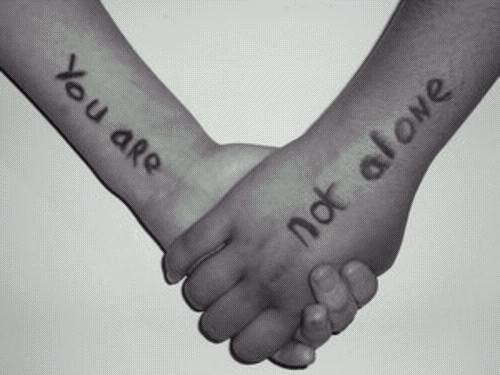‘Sometimes we’re afraid to admit that we’re sad, that we’re anxious, that we can’t do it all’ – Nathan Blansett
Below is a wonderful blog written by my good friend and colleague from Seraph Psychotherapy, based in Hull. I am sharing this with her permission as depression is something I have been thinking about a lot recently. January is a notorious time for people to identify with symptoms of depression as it is a time when many think about making changes, address health and lifestyle issues and comes straight off the back of the holidays, which for some can be fraught with stress and tension or for others herald the end of a tough year. It is a time when we remember those we have lost, those who struggle and perhaps are forced or encouraged to spend time with people we would not otherwise choose to. There is also less natural sunlight and once the bright lights of Christmas are dispensed with the dark days and long nights can themselves lead to feelings of sadness and for some, depression.
What is depression and who experiences it?
Written by Alex Carling on
There are mixed findings about the prevalence of depression, in a workshop delivered by and an article written by Mark Widdowson, which are the references for this blog, he states that The Office of National Statistics (2000) in the UK, reported that 2.8% of the population experienced a depressive episode whilst 9.2% experienced mixed anxiety and depression in 2000. I’ve decided to write this blog as I find that people are still unsure about what it is exactly. From my experience, people mainly associate it with sadness and lack of interest but there’s more; so read on if you want to understand it for yourself or a loved one, a little better. I’ve tried to stay away from the psychological language and kept it brief in hope that the blog will be approachable and you can connect with it.
Development:
Transactional Analysis (TA) theory suggests that we all, in the earlier years of our life, make decisions about ourselves, others and the world and it is these decisions that shape our behaviours in how we exist with others and get our needs met; TA also promotes that these behaviours can be changed. In the context of depression, people tend to report that they have had parental figures that have lacked in emotional warmth and affection; when a child grows up with high levels of criticism and low levels of praise it is understandable how they would develop negative images of the self, others and the world. If they have an ingrained feeling of ‘being bad’ that ‘life is hard’ and perhaps ‘others expect too much of me’ their internal world is over-come with guilt, blame and shame. Without the positive relationships that would help that child or young person recover and learn different ways of being, these behaviours have a high chance of being present in adulthood and thus presenting in depression. I must say that not all those who are depressed have had this experience.
Emotions:
I guess this area is the one people are most familiar with; those with depression experience prolonged negative and difficult emotions and a deficit of positive emotion.
Being able to regulate our emotions is essential for functioning internally with ourselves and externally with others; to stimulate and cultivate different emotions whilst being able to reduce emotion in various situations is what is meant by regulation, this is a conscious or nonconscious process.
Depression inhibits one’s ability to regulate their emotions, they can’t snap out of it, it is as though there has been a blanket placed to cover all positive emotions which leads to avoidance of interaction and activities, which will increase their negative thoughts and feelings about themselves; thus reinforcing the whole system. People with depression are more likely to experience anger and hostility over those who do not have depression. Due to their impaired ability to regulate, a loss of control and entrapment are associated with depression and the desire to escape their entrapment is often a thought process which is engaged in compulsively.
Thoughts:
If we link this area to what is written in the development part; if the individual has feelings of inadequacy, failure and worthlessness this will inevitably tarnish their experiences in that they will view their experiences as negative, they may have negative expectations, remember only the negatives and only pay attention to things like criticism, leaving praise unnoticed or inaccessible to memory recall. This process again, maintains the depression.
‘Extensive evidence indicates that depressed individuals hold more negative self-views, blame themselves more than others for negative events, are more pessimistic for themselves than others, and are more adversely affected by self-reflection than non-depressed individuals.’
(Wisco, 2009:382)
Treatment:
As a TA practitioner, I acknowledge the importance of anti-depressants in providing the individual with the ability to cope, in that it inhibits the negative and pervasive feelings mentioned so far. I think that psychotherapy has many qualities to offer those suffering from depression. A practitioner can facilitate the client to identify the source of negative messages that, throughout the years, the client has made part of who they are, as though it is their own voice that has always spoke the harmful words, they have knowledge of various theories that are so brilliant (in my opinion) at being able to depict the behaviours people engage in and the feelings and behaviours of others that they invite, the client will then have an awareness, a deeper understanding and the option of change. This sounds very simplistic I know, though within a relationship with a therapist, a client can walk away with the information they need to make an informed choice, armed with permissions to change or think differently, or hope for a positive outcome; as the client consistently attends, they will eventually start to replace their old critical messages and frame of thinking with the positive ones from the therapist and success will reinforce the change.
Thank you to Mark Widdowson for sharing his wisdom in this area at this years North East Transactional Analysis Conference.


 Follow
Follow





